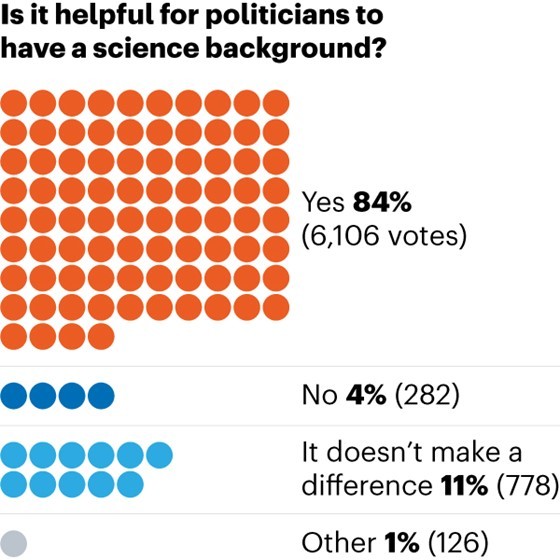Hello Nature readers, would you like to get this Briefing in your inbox free every day? Sign up here.

IgG antibodies (artist rendering shown here) taken from people with long COVID and injected into mice give the animals symptoms such as increased pain sensitivity and reduced motor function.Credit: Kateryna Kon/Science Photo Library
When antibodies from people with long COVID were injected into healthy mice, the animals appeared to experience pain and fatigue — two of the hallmarks of long COVID. The finding — now from two studies — suggests that the antibodies are the cause of the long COVID symptoms. But how that process works is unclear, and the results will need to be replicated in larger studies. At the very least, the results could help overcome ‘policymaker fatigue’ in funding the development of small-animal models for long COVID research.
Reference: bioRxiv preprint (not peer reviewed)
A semi-automated, AI-boosted video assisted referee (VAR) system will play a key part in how referees make decisions at this year’s UEFA European football tournament. Ten cameras above the pitch track 29 locations on each player’s body in real time and the ball contains a sensor that notes its location and movement, 500 times per second. “One major application is detecting violations of the offside rule,” explains sports physicist John Eric Goff. The technology isn’t without its detractors: inconsistencies in how referees apply VAR and the time they sometimes take to make decisions has fueled discontent. “Things such as fouls and yellow or red cards still require human decision-making,” adds Goff.
Nepal has experienced its second-worst fire season on record in 2024, with smoke choking Kathmandu for many days. But while the spread of wildfires is affected by climate change, “their origin, at least in Nepal, is mainly anthropogenic”, says climate scientist Binod Pokhrel. The country’s transition from a monarchy to a federal system deprioritized the management of community forests, out-of-date laws hinder cutting trees for fire prevention and urban migration severed some people’s connection to the woods. Pohkrel recommends re-engaging the community with localized fire prediction.
Reader poll

Last week, we reviewed the legacy of five national leaders with backgrounds in science and engineering.
Most of the readers who replied to our poll agreed that it’s helpful for politicians to have a science background. It “can provide a habit of testing ideas against reality in preference to ideology”, writes psychotherapist Simon Mundy.
Some people pointed out that politicians should be well-rounded. “A person with only a science preparation, or only any other preparation is unlikely to be able to think broadly or diversely enough to be effective as a leader,” explains human-development researcher Lawrence Shelton.
Others felt that a ‘science background’ can mean more than just a subject-specific degree. “I don’t think that politicians need to have a science degree, but it would help if they understood and respected the scientific method and the opinions of scientific experts,” says gerontologist Gilda Ennis.
Features & opinion
The high seas — waters outside of any nation’s control, covering two-thirds of oceans’ surface area — urgently need a conservation plan as the climate warms, argue ten scientists with experience of such issues in the North Atlantic. Implementing the international High Seas Treaty agreed last year will be a first step, say the authors — a first meeting to prepare that process is due this month. But specific measures that address climate change’s impact on marine life, for example as species’ habitats shift, are needed. “Protecting biodiversity in the high seas in the face of climate change is an ongoing chess game,” they write.
How do you get your creative juices flowing after spending hours, days or months looking at a blank screen? One major lesson, says psychologist Paul Silvia: there will never be a perfect time to write. “That was the first switch to really flip” on the quest to finish his own book, he says. He and other scientists share their advice on how to conquer the block and put pen to paper.
Editors struggle to keep a Wikipedia page up-to-date during the apocalypse in the latest short story for Nature’s Futures series.
A huge trial of hybrid working has shown that this approach can help companies retain employees without hurting productivity. Researchers randomly selected more than 1,500 people at a company in China to work in the office either five days a week or three. “So in this one study, we see quit rates drop by a third,” says economist and study co-author Nick Bloom. “Other studies and other measures and surveys reported employees value hybrid about the same as almost a 10% pay increase. So in a sense, it’s like, what’s not to like?”
Nature Podcast | 38 min listen
Subscribe to the Nature Podcast on Apple Podcasts, Spotify or YouTube Music, or use the RSS feed.
This week, Leif Penguinson is marvelling at bulbous trees in the Xishuangbanna Tropical Botanical Garden of the Chinese Academy of Sciences. Can you find the penguin?
The answer will be in Monday’s e-mail, all thanks to Briefing photo editor and penguin wrangler Tom Houghton.
Unfortunately, yesterday’s Briefing wasn’t sent to everyone because of a technical fault. If you didn’t get a thrilling update about how mRNA-vaccine technology could personalize cancer treatments, why poor sleep disrupts memory and what ancient DNA from Maya ruins tells about ritual human sacrifices: click here to read it online.
This newsletter is always evolving — tell us what you think! Please send your feedback to briefing@nature.com.
Flora Graham, senior editor, Nature Briefing
With contributions by Katrina Krämer, Sara Phillips and Katharine Sanderson
Want more? Sign up to our other free Nature Briefing newsletters:
• Nature Briefing: Microbiology — the most abundant living entities on our planet — microorganisms — and the role they play in health, the environment and food systems.
• Nature Briefing: Anthropocene — climate change, biodiversity, sustainability and geoengineering
• Nature Briefing: AI & Robotics — 100% written by humans, of course
• Nature Briefing: Cancer — a weekly newsletter written with cancer researchers in mind
• Nature Briefing: Translational Research — covers biotechnology, drug discovery and pharma

